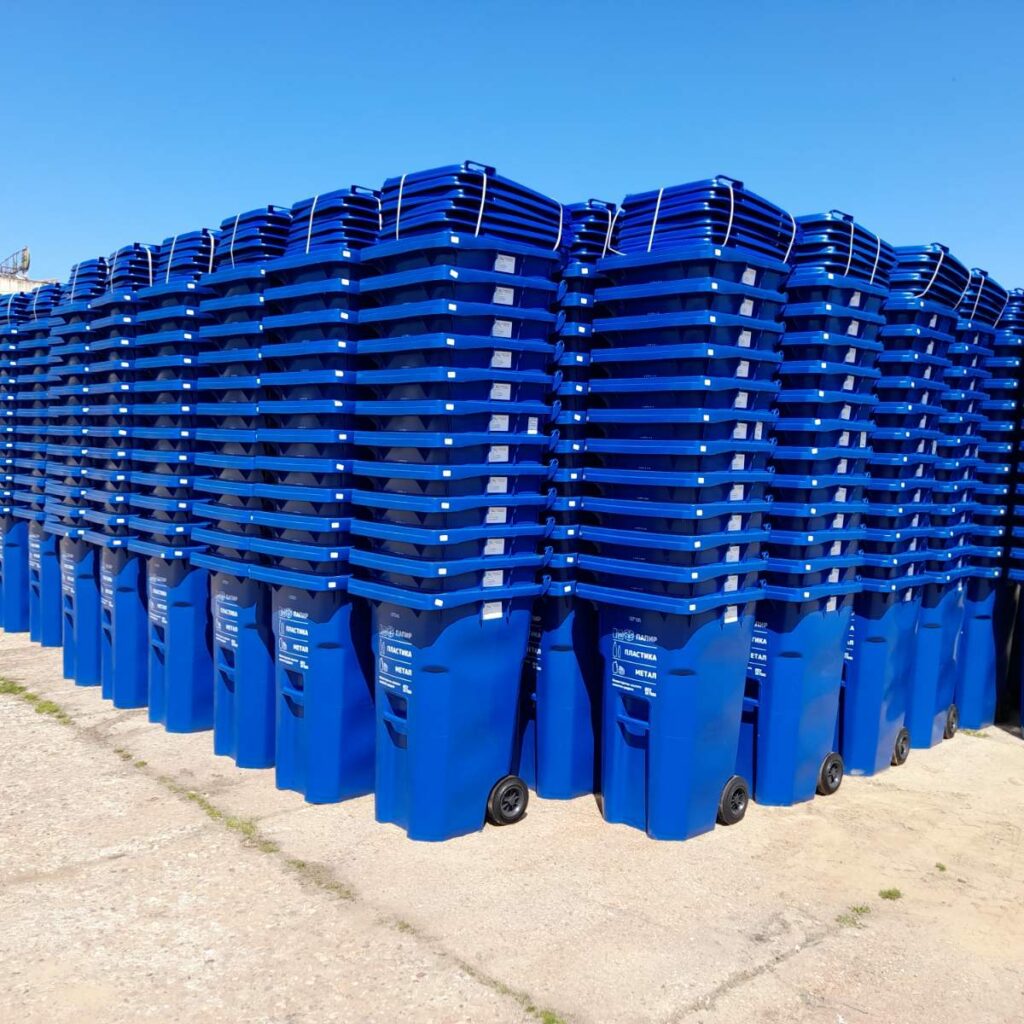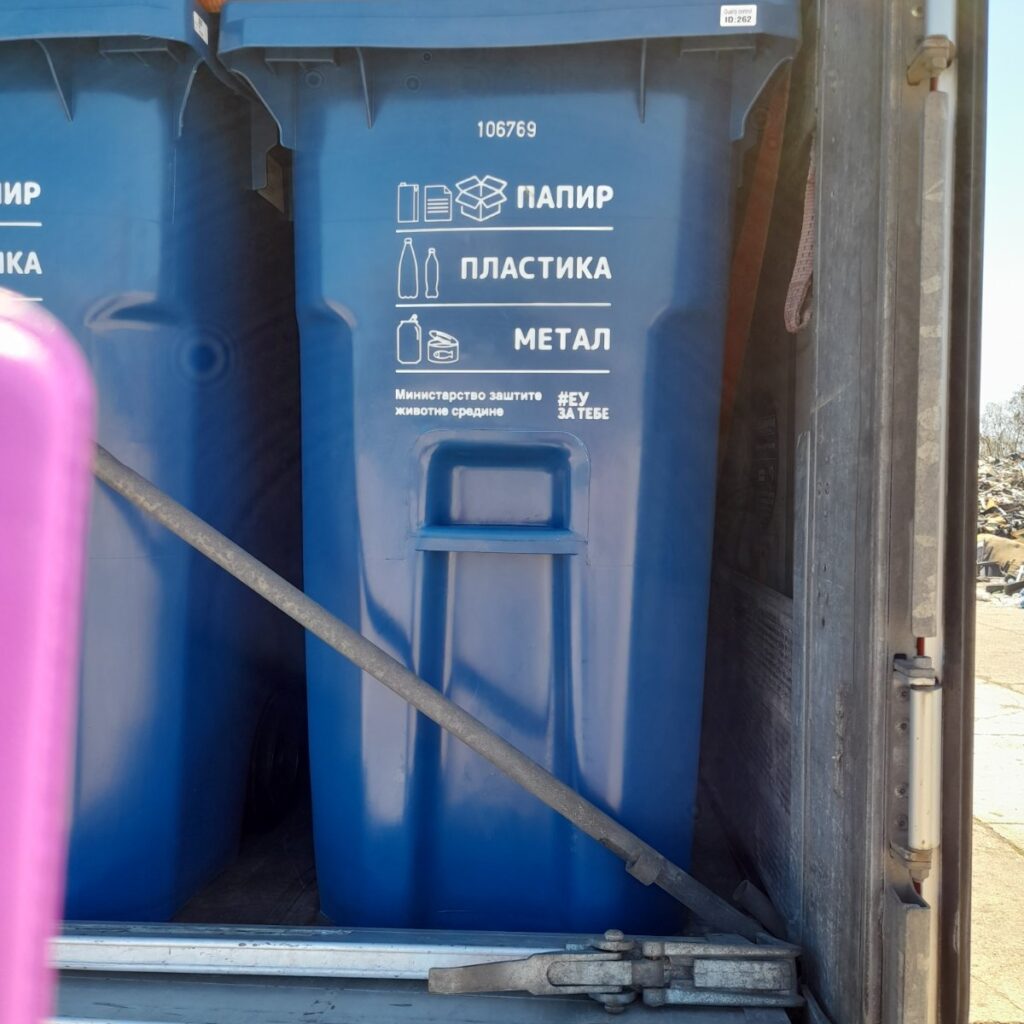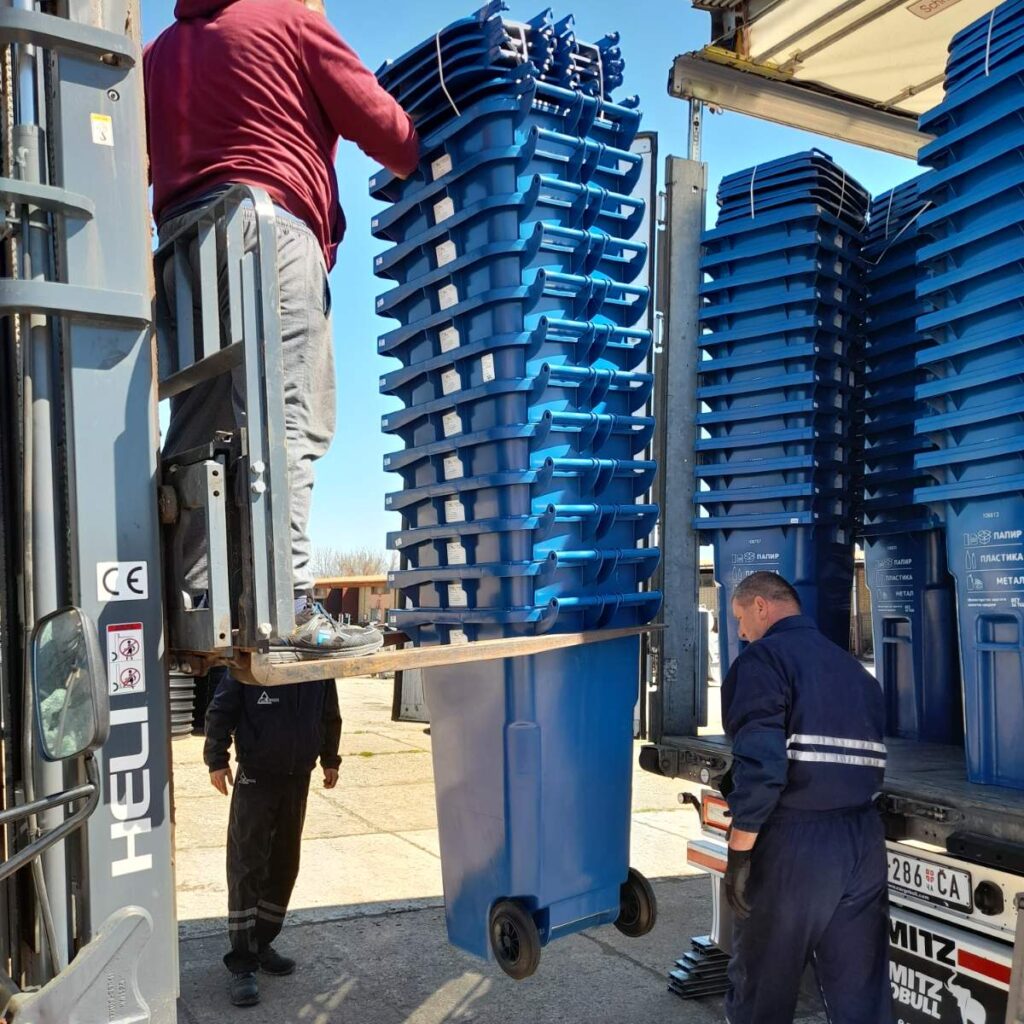“It should be noted that the organizational and technical aspects of implementing a project of such importance and scale have significantly increased the cost for both our company and the city of Čačak, and that the ultimate benefit of these efforts will be reflected in reducing the total operating costs, and in turn reducing non-recyclable waste and curbing the need to haul wet waste to the Duboko Regional Landfill,” said Director Domanović.
As the program sets out, the city will receive 15,164 blue bins of 240 liters intended for in individual households — 392 containers of 1.1 m3 for dry waste and 248 yellow containers for glass packaging that will be installed in public areas near residential buildings.

As yet, our company has gotten 10,000 blue bins of 240 liters for individual households — 96 blue containers of 1.1 m3 for source separation intended for collective housing — while now we are expecting a successive delivery until the final number of required containers in the next period. According to the established dynamics, the first distribution of bins for individual households to users is expected in June, after adjusting the schedule and obtaining the needed approvals. Each household will enter into a contract on using the containers. Considering the complexity of implementing the program, which requires maximum involvement of all participants, the principle, usage, and types of waste by container type will be explained in detail. In the COLLECTIVE HOUSING category, detailed instructions will be prepared and posted on bulletin boards in the building lobbies, and flyers will be delivered to every mailbox in the buildings. The new bins will be set up at their locations next to existing wet waste containers. Each container will have clear markings to indicate which type of waste it is for.

After completion, each location should have containers for wet, dry, and glass packaging waste.
Users in the INDIVIDUAL HOUSING category in households that already have wet waste containers will receive blue bins of 240 liters, along with the contract and printed detailed instructions on usage and waste type, as well as the waste collection schedule. The contract will precisely define the rights and obligations of the contracting parties.
In addition to the clear instructions that users will get on the flyers, a number of activities will promote the project through media campaigns, billboards, and information desks meant to inform and raise awareness of the importance of source separation by our fellow citizens.
